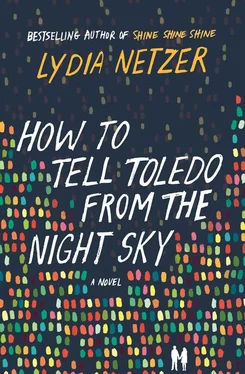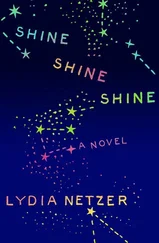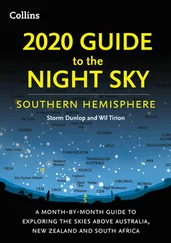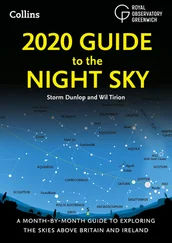“Hi, George,” said the guy, “Did you, ah, get a chance to look at the numbers on that new lens?”
“Sure, Ken.” George waved him off and galloped on up the stairs. “I’ll absolutely take a look at those numbers on that new lens as soon as I get back to my office. Great work. Great times.”
“It’s Frank,” said the guy. But George pulled the door open and entered the building.
Herschel Hall was a four-story building with an enormous atrium in front. The entranceway dazzled visitors with a giant oak door, marble pillars, and a thick chandelier. Farther on, huge arches of windows stretched to the back, and a vaulted ceiling claimed its shape in the pointed roof. Around the walls, under the windows, a giant mosaic-tile mural portrayed a colorful solar system, with comets and quasars whishing about. The floor was stone, and couches and tables were scattered about artfully among varied greenery, potted palms and fig trees for the most part. A fountain tinkled in the middle of the room, which took up the whole building. The fountain was a rough human form intended to be Hesiod, the Greek astronomer. Water came out of the top of his head in a gentle spray.
Upstairs, Kate’s office was a mess of potted plants, and a birdcage in the corner housed a pack of finches. George breathed in deeply a couple of times. Was it pollen making his skull ache so much? The floor of her office was covered with a reed mat, and as he poked his head in the door, wearing his most radiant grin, he heard the sound of a flute. He saw that she was sitting in the open window, her legs outside, playing it.
She was a tall girl, and willowy. She had long dark hair flat to her head and wore long fitted skirts that forced her to take small steps on her platform shoes. George felt immediate fear that she would fall out the window. George looked at the thin long fingers holding the flute. Her eyes were closed. She seemed far away.
“Kate!” said George, “Kate Oakenshield! It’s nice to see you!”
It was hard for George not to add “the girl who was raised a mute” to her name. But he refrained. For her.
She jolted, and for a moment he thought she really was going to fall out the window. But then she hesitated, put the flute in her lap, and leaned her shoulder against the frame.
“George,” said Kate. She said everything emphatically. Not like a foreign person. But with decisive pronunciation. George figured that the emphaticness was the only way she could talk in English instead of trilling a sonata or something.
George came into the office, stepping onto the reed mat. “Hey!” said George, “Why not come back in the window? That’d be better, right?”
Then he leaned against the wall, relaxed and unthreatening. Certainly not alarming enough to shock someone out a window. How many meters would it take her to reach terminal velocity, if she were to fall?
“Hello, George,” she said.
“I came up to see you,” said George.
Kate Oakenshield nodded emphatically.
“That’s a great flute. Great song. Would you like to read some of my new article? I wrote it for the Dark Star Review. I mean, I’m writing it. This is a draft, do you want to read it?”
George pulled out a piece of paper from his pants pocket and unfolded it. It was one sheet, with small letters on the front.
“Put it on the desk,” she said.
“You don’t have to read it now,” said George.
Kate Oakenshield barked at him, sort of a comforting shushing bark down in her vocal cords, and he understood that she really wanted to get back to playing the flute while hanging half out the window. Maybe in her brain she was calculating the mass of a neutron star.
“Do you want to go to dinner?” he pressed. “Or something? A walk?”
Kate Oakenshield coughed or hummed and shook her head. Dinner or a walk would be torment, he knew, for both of them. Him straining and trying to make her talk, her perplexed and frustrated with talking. He felt like that guy with the grapes in the water, where the grapes were a pretty girl who happened to be insane, and the water was his burning desire to make her fall in love with him. Or something.
“Wait a second,” said George, “Maybe you could write back to me? Instead of talk! I mean, if it’s not too much trouble to write? You could show me, at dinner, your answer. We could write, back and forth, on paper!”
Dear Kate, he thought of writing. Do you like me? Circle yes or no. Thanks, George. But she frowned. George dragged his fingers through his hair. Of course. Calling attention to her weakness like that had been a mistake. She was probably angry or sad, and would now go and cry over her computer, making whuffling sounds like a clarinet with a wet cotton ball in its mouthpiece. Now she was opening and closing her eyes rapidly. He didn’t want to be responsible for her having some kind of medical setback.
Then the blinking stopped and he heard her call to him, loudly, and she was singing the whole sentence.
“I am studying black hole accretion,” she sang, “It is Dr. Bryant’s main focus now.”
George knew this. To him, black hole accretion had always sounded like pooping. But this was the longest thing she had ever communicated to him. Which made it very exciting, in terms of the seduction.
“I have always been profoundly interested in black hole accretion myself,” he sang. He tried to sound like he was in an opera, the way they sort of sing without having a reason. And the lines kind of go up at the end. “My-SELF!”
Kate Oakenshield writhed her way backward out of the window, somehow without showing a peep of her leg, and when she had gotten her feet on the floor she approached him, smiling. She put her hand on his chest, and through the crisp white shirt she pushed him backward. Would she drive him to the ground, mount him like a vulture, tear him to pieces, squawking and squawking? But she was pushing him out the door. The last thing he saw, before the door closed between them, was her teeth.
In this manner, they had been going on for weeks, Kate making strange noises in her throat and George wanting to get her into bed, both working hard at the Toledo Institute of Astronomy, waiting for a breakthrough. George wondered, in his heart, if she could really be for him. But categorically, given the words of the psychic, how could it be otherwise?
The avenue that led into the campus of the Toledo Institute of Astronomy was flanked with tall cedar trees interspersed with statuary representing the world’s famed telescopes and cameras, both orbital and terrestrial. Irene drove down its wide expanse with a faculty parking pass hanging from her rearview mirror for the first time. Inside the Fiat, the air-conditioning was on. She could not hear any sounds. She had turned the radio off. She was counting her breaths, marking the stabs of her heart against her rib cage, and how her organs turned inside her like marmots struggling to get out. On the seat beside her were some papers, all the materials she had printed off from the joyful e-mails the institute had sent her. There was a temporary ID card, a map of the campus, boat tickets for a cruise on the Maumee River for two, and a page of interview questions for the campus newspaper. Someone was writing an article about her.
How did she feel when she first saw the black holes? Excited. How long had she been working with this experiment? Months. Who had designed the microcollider? She had. Who had built it. A fabricator. What were her plans for the future? To make black holes in Toledo. Apart from that, her plans were indeterminate.
Don’t put this on Twitter, they said. Come to Toledo, and all will be explained.
Driving down this treelined avenue with a faculty parking pass, she felt like she was leading a parade with brass bands and people marching in big head costumes. There might as well have been screaming fans packing the curbs, hanging from the trees, pelting her with roses.
Читать дальше












